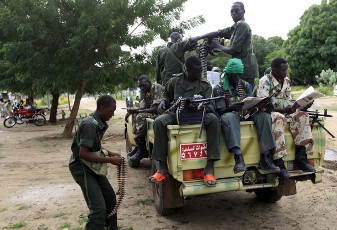Sudanese lawmakers say economy will not improve unless conflicts end
March 22, 2014 (KHARTOUM) – The Sudanese national assembly summoned three government ministers to inquire about the progress of the economic tripartite program, as well as challenges facing its implementation.

The officials who appeared before the parliament included agriculture minister Ibrahim Mahmoud Hamid, minister of Livestock and Fisheries Faisal Hassan Ibrahim and state minister of finance Magdi Hassan Yassin.
Yassin denied to lawmakers any intention by the government to raise fuel prices including jet fuel, stressing that any such move will have to be approved by the parliament first.
The chairman of the parliament’s subcommittee on economic affairs Salem al-Safi Hajeer told reporters that the economic tripartite program failed to achieve its objectives or perform according to the plan because of the conflicts in Darfur, Blue Nile and South Kordofan which diverted millions of dollars to war efforts.
“If we do not stop the war we will not reach a stable economic situation and we will not solve the problems in the country,” Hajeer said.
Late last September, the Sudanese government agreed to scale back fuel subsidies which caused prices of gasoline and diesel to almost double which resulted in violent clashes that killed hundreds of demonstrators.
Sudanese officials have defended the measure, saying the only alternative would be an economic collapse as the state budget can no longer continue offering the generous subsidies on petroleum products to its people.
The secession of oil-rich South Sudan has caused an economic shock in north Sudan which relied heavily on crude exports to support its budget.
The World Economic Outlook (WEO) released last October by the International Monetary Fund (IMF) projected Sudan’s economy to grow by 3.9% in 2013 and 2.5% in 2014.
(ST)
